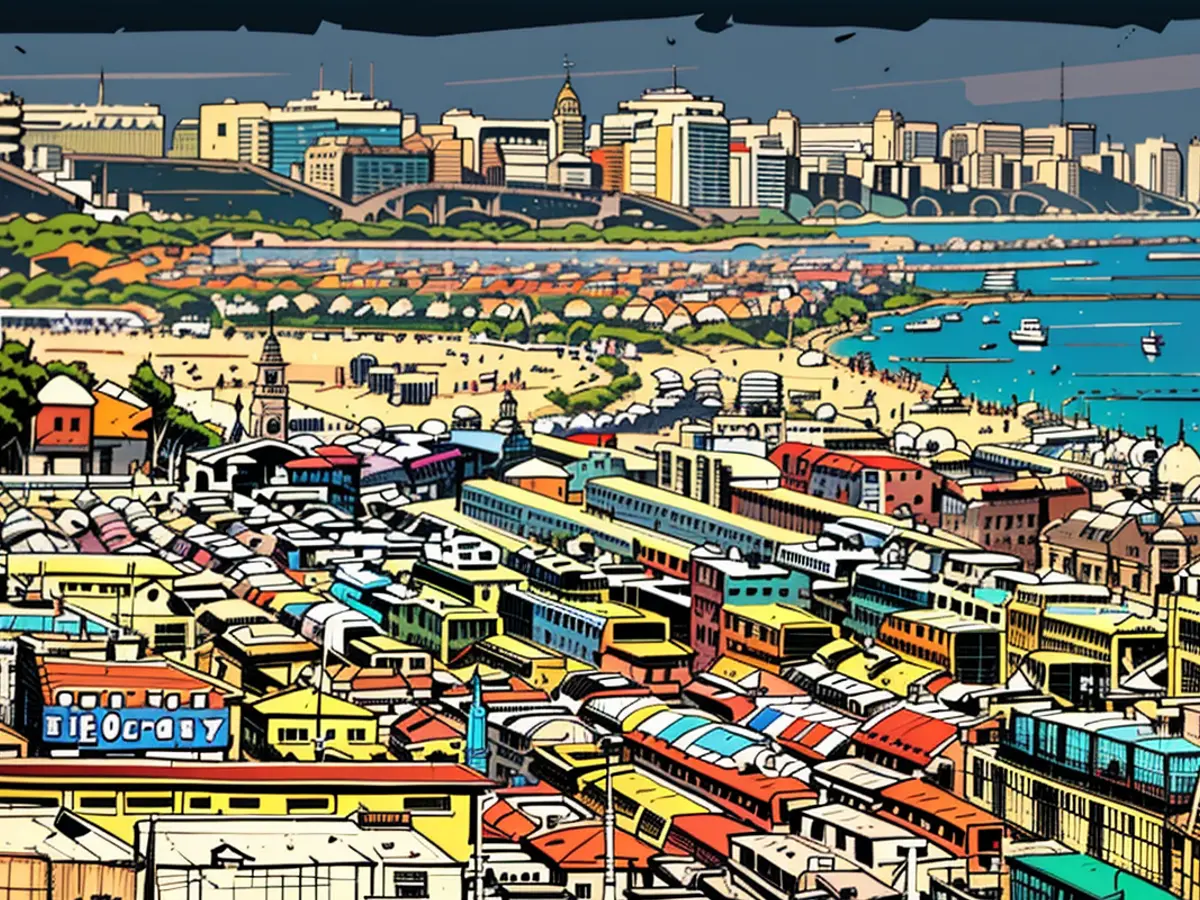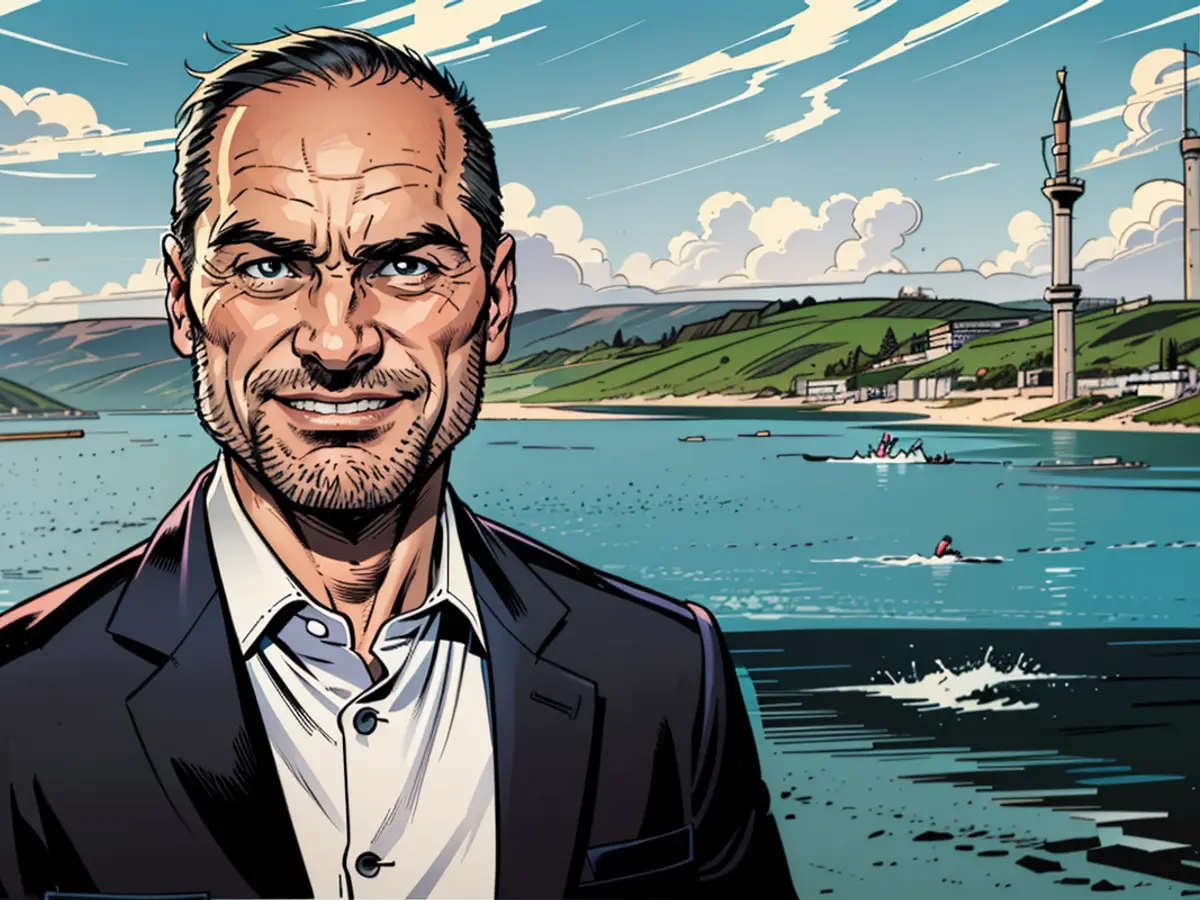- Summer, sand and strike - Italy's beaches close
August has always been the month when they make the most money in Ostia. At the "Tibidabo", one of the beautiful old baths on the city beach of Rome, opened in 1935, they often put up the sign "Umbrelloni esauriti" at the cash desk as early as the morning: no more sun loungers, everything booked until evening. In Italy, it is recommended to be at the sea as early as nine in the morning on these days. However, it is quite possible that this will not help on this Friday.
In the middle of the main season, the owners of many of the country's 7,200 beach establishments, the stabilimenti balneari, are planning to go on strike for the first time: initially only in the morning for two and a half hours. But if the government of right-wing Prime Minister Giorgia Meloni does not move, the beaches will remain closed for half a day in mid-August, still in the holiday season, and for a whole day at the end of the month. The background is an EU directive that Italy has been dodging for almost 20 years.
Look down on foreigners with towels
For the millions of holidaymakers on the more than 7,500 kilometers of Mediterranean coast, such a strike would not necessarily be a catastrophe. But it would be a nuisance for many. The sun lounger (Italian: lettino) and the sun umbrella (ombrellone) are, so to speak, part of the national cultural heritage. Foreigners who simply spread out their towels on rocks or stones on the beach are looked down upon here - and even if it's only from 20 centimeters above.
However, the more comfortable position has its price. According to the national bathing observation center, the average daily rental price for two loungers and a sun umbrella was 30 euros last year. There are hardly any limits to the prices: several hundred euros are paid in beach clubs in Tuscany or on the Amalfi coast. Many families have become very rich with their stabilimenti.
Beaches actually belong to the state
In fact, Italy's coast belongs to the state - i.e. to everyone. However, more than half of the beaches are rented to private individuals, often for decades, often under the table and often at ridiculous prices. Some call it nepotism, others mafia structures.
On average, a lessee pays about 8,200 euros per year for the concession. The revenues are many times higher. The Center for European Policy (CEP) last estimated an average annual turnover of 260,000 euros per bath. Other estimates go far beyond that - especially since a lot of beach money is probably channeled past the tax office. The newspaper "Corriere della Sera" estimates the annual turnover of the entire industry at up to 30 billion euros.
Most Italians have come to terms with the fact that they have to pay a lot for their time at the sea. "I don't know anything else," says Giulia Toninelli, a civil servant from Rome, on her lounger in the "Tibidabo". "I've been coming here with my parents, now with my children. That's just the price." However, there are also some who are no longer satisfied with the established system. The writer Manuela Salvi complains about "beaches like battery cages, where the chickens have to pay for their stay too". So far, however, protests have been limited.
The status quo is at risk in another way: due to an EU directive that should have been implemented in 2006. According to this directive, state concessions for beach sections must be regularly re-tendered because they are public property - something that various governments in Rome have repeatedly postponed.
One of the arguments is that one must prevent foreign corporations from having a say at the beach instead of Italian families - as happened two years ago in the Gulf of Trieste, where the energy drink multinational Red Bull secured the tender for 120,000 square meters. However, nationwide tenders are now scheduled to begin in January 2025.
Disappointment with Prime Minister Meloni
One of the biggest critics of the EU directive, when she was still in opposition, was the current Prime Minister Meloni. Therefore, beach operators are now deeply disappointed. Antonio Capacchione, president of the industry association Sindacato Italiano Balneari, complains: "The government has done nothing for two years. We sent eight letters requesting a meeting - without a response. What else can we do but strike?"
This is why Italy is seeing its first-ever "sciopero degli ombrelloni" - "strike of the sun loungers" - although many details are still unclear. It is certain that the cash booths will open later in the morning. Regular customers may be allowed to set up their own lounger and umbrella.
Moreover, some owners, who are organized in a different association, announced on Thursday that they would not participate in the strike: one cannot punish customers for Brussels or Rome. In any case, the price for a lounger and umbrella will not change this Friday. The usual daily rate applies everywhere.
Despite the strike, the beachgoers might still find some sun loungers available as some owners have decided not to participate. Regardless, beach bathing will continue to be a cherished tradition during this period, with many foreigners following the local custom of using rented sun loungers and umbrellas instead of spreading towels on the beach.








